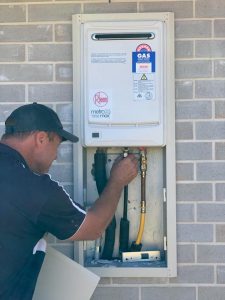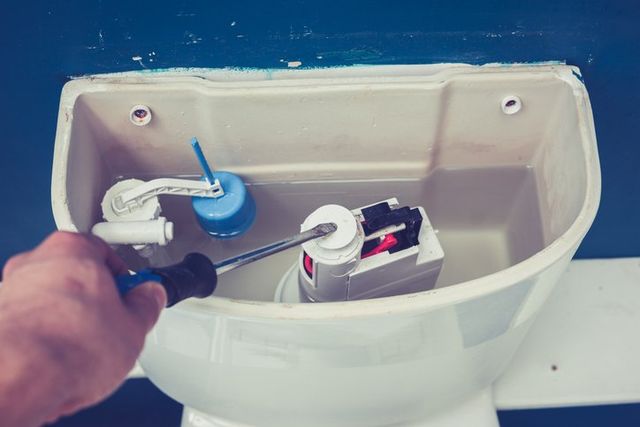Coping with the Most Frequent Hot Water Heater Emergencies
Coping with the Most Frequent Hot Water Heater Emergencies
Blog Article
The writer is making several great pointers on Warning Signs You Need Water Heater Repairs overall in this post down below.

A hot water heater is one of one of the most vital standard home appliances that can be located in a house. With hot water heater, you do not need to go through the stress and anxiety of heating water manually every single time there is a need to wash, do the laundry, or the meals. There is always an opportunity that your water heater would act up as with most mechanical tools.
It is very important to note any little malfunction as well as tackle it promptly before things get out of hand. A lot of times, your hot water heater starts to malfunction when there is a build-up of debris as a result of continual usage. As a preventative measure, periodic flushing of your hot water heater is advised to avoid sediment accumulation as well as stop functional failure.
Common hot water heater emergencies as well as exactly how to deal with them
Inadequate warm water
It may be that the water heating unit can't support the warm water demand for your home. You might upgrade your water heating system to one with a larger ability.
Changing water temperature.
Your hot water heater could start generating water of different temperature levels typically ice scalding or cool hot. In this situation, the first thing you do is to ensure that the temperature is readied to the wanted level. If after doing this, the water temperature keeps altering throughout showers or various other activities, you might have a malfunctioning thermostat. There could be a demand to change either the heating or the thermostat device of your water heater.
Leaky water heater tank.
A leaky container could be an indicator of rust. It could create damage to the flooring, wall surface and electric devices around it. You can even go to risk of having your home flooded. In this scenario, you ought to switch off your water heater, permit it to cool, as well as very carefully try to find the source of the trouble. Sometimes, all you need to do is to tighten a few screws or pipeline links in cases of small leaks. If this doesn't function as well as the leakage continues, you could require to employ the solutions of a specialist for an appropriate substitute.
Stained or stinky water
When this occurs, you require to understand if the issue is from the storage tank or the water resource. If there is no amusing smell when you run cold water, then you are specific that it is your water heater that is damaged. The smelly water can be triggered by rust or the accumulation of germs or sediments in the hot water heater storage tank. Once you observe this, you can attempt flushing out your storage tank or changing the anode if the issue persists. The function of the anode is to clean microorganisms from your storage tank. Given that the anode rod replacement needs a thorough expertise of your water furnace, you will need the assistance of a professional.
Verdict
Some homeowners disregard little warning and minor faults in their water heater unit. This just results in additional damages and a possible full break down of your home appliance. You ought to take care of your water heater faults as soon as they come up to prevent even more expenditures and unneeded emergency difficulties.
With water heaters, you don't require to go with the tension of home heating water by hand every time there is a need to take a bathroom, do the washing, or the meals. It might be that the water heating unit can't sustain the hot water demand for your home. Your water heating unit could start producing water of different temperature levels typically ice scalding or cool warm. If there is no funny odor when you run cool water, then you are certain that it is your water heating unit that is damaged. The stinky water can be triggered by rust or the build-up of microorganisms or debris in the water heater tank.
9 COMMON CAUSES OF WATER HEATER LEAKS
Why Is My Hot Water Heater Leaking?
Old Water Tank
Just like with any other household appliance, water tanks wear down as they age. Older water tanks are more susceptible to leaks and lower water retention. Generally, a leaking water tank results from rust buildup that causes internal corrosion. As the inside of the tank corrodes, cracks form that allow water to escape. You can patch the cracks to buy some time, but this is only a temporary fix. Eventually, you’ll need a new unit.
Drain Valve
You can use the drain valve on your water heater to empty and clean the tank. This component can become loose as it encounters continuous usage throughout the years. If your hot water heater is leaking, the source of the issue may be a loose drain valve. You may notice a mild water leak due to small openings that weren’t there before. Sometimes a simple tightening will do the trick, but if the valve is loose at the base, you will need to replace it.
High Pressure
Your water heater will naturally create pressure as it increases the water’s temperature. But too much pressure can cause problems. If excess pressure can’t escape the unit properly, water starts to leak through any cracks that are present.
Malfunctioning Temperature & Pressure Relief Valve
The problem above may result from a malfunctioning pressure relief valve. When the internal pressure of your water tank gets too high, the pressure relief valve allows steam to escape the unit and return to a stable temperature. Sometimes the valve just gets loose and needs to be tightened, but if it’s broken, you need to replace it with a new one.
Inlet & Outlet Connections
During the heating process, cold water comes into the tank through the inlet connection, and hot water exits through the outlet connection to travel through the pipes in your home. As with drain and pressure relief valves, these connections can loosen over time and cause a water heater leak. If this happens, either try to tighten the connections yourself or call a professional plumber.
Tank Interior
Water heaters have two “shells,” an internal shell that contains the water and an external shell that insulates the internal shell. While water leaks coming from the external shell are easy to spot because it’s just covered by a thin metal layer, they’re harder to catch in the internal shell because it’s covered by two layers of material.
Collection of Sediment
Here’s why regular water heater maintenance is so important. If you neglect cleaning the tank, sediment builds up at the bottom and eventually causes the unit to crack. The formation of cracks in the tank can cause a mild to severe water heater leak in your home. If the tank starts leaking, all you can do is replace it entirely. So do yourself a favor and clean the tank a few times a year to prevent this from happening. Your wallet will thank you later.
https://www.horizonservices.com/about-us/blog/9-common-causes-of-water-heater-leaks/

As a keen person who reads on Warning Signs You Need Water Heater Repairs, I was thinking sharing that excerpt was worthwhile. Enjoyed reading our write up? Please share it. Let others find it. Thank you for your time spent reading it.
Avoid disaster, Call us! Report this page